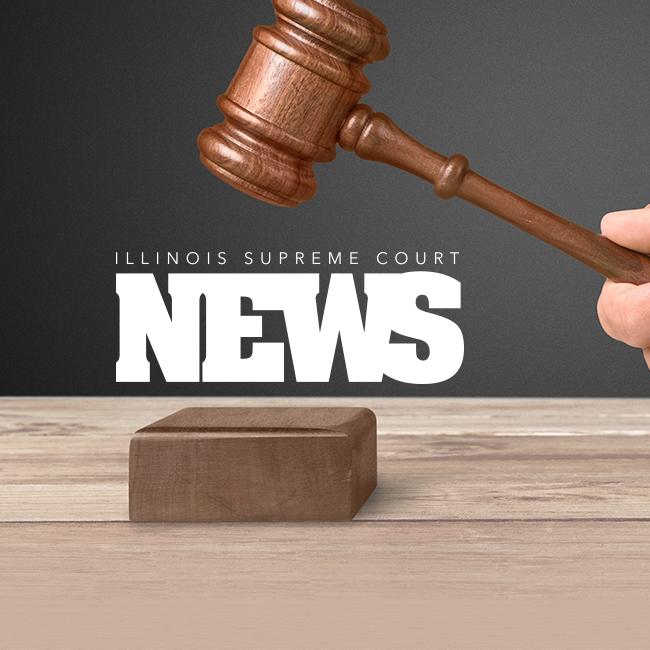Memorial Service for Illinois Supreme Court Justice Charles E. Freeman

The Illinois Supreme Court will host a memorial service in honor of the late Justice Charles E. Freeman, the first African American to serve on the Court. A program will be available for download on the Court’s website a few days before the service.
The service will take place at 2 p.m. Wednesday, Sept. 16. It will be held at the Supreme Court Courtroom at 200 E. Capitol Ave. in Springfield.
Public attendance will be available via livestream at https://livestream.com/blueroomstream/events/9226889
Opening and closing remarks for the service will be made by Chief Justice Anne M. Burke.
Those scheduled to offer tributes include retired Supreme Court Justice Benjamin K. Miller, retired Supreme Court Justice Robert R. Thomas, First District Appellate Justice Robert E. Gordon, retired First District Appellate Justice Carl McCormick, attorney Mr. James D. Montgomery, Esquire, Cook County Circuit Judge and Chair of Illinois Judicial Council Thaddeus L. Wilson, and current Illinois Supreme Court Justice P. Scott Neville, Jr.
Charles E. Freeman was born in Richmond, VA on December 12, 1933. He graduated from Virginia Union University in Richmond with a B.A. in liberal arts in June 1954. He received his J.D. from the John Marshall Law School in Chicago in February 1962.
Early in his professional career, Justice Freeman served as an Illinois assistant attorney general, an assistant state's attorney and an attorney for the Board of Election Commissioners.
He was appointed as an arbitrator to the Illinois Industrial Commission in January 1965 and served in that capacity until September 1973. From September 1973 until December 1976, he served as a commissioner on the Illinois Commerce Commission, having been appointed by the Governor and confirmed by the Senate.
Justice Freeman engaged in the general practice of law from 1962 to September 1976, when he was elected to the Cook County Circuit Court. While a Circuit Court Judge, Freeman became the first African-American to swear in a Mayor of the City of Chicago, his good friend, Harold Washington. Justice Freeman was elected to the Appellate Court in 1986.
He was elected to the Illinois Supreme Court on Nov. 6, 1990 and served until June 14, 2018, as the first African-American member of the Court. On May 12, 1997, he was selected as Chief Justice and served in that capacity until December 31, 1999. Justice Freeman won retention to the Court in 2000 and 2010, both with nearly 80 percent of the vote.
Justice Freeman was a member of the Cook County, Illinois State and DuPage County Bar Associations, the Illinois Judicial Council, the Illinois and American Judges' Associations and the American Judicature Society. He received numerous awards throughout his career, including the Freedom Award from the John Marshall Law School, the Seymour Simon Justice Award from the Jewish Judges Association, the Earl Burrus Dickerson Award from the Chicago Bar Association, and the Ida B. Platt Award and the Presidential Award from the Cook County Bar Association.
Justice Freeman is survived by his son Kevin Freeman (wife Cami), grandchildren Skye Marie Freeman and Miles Charles Freeman, as well as his brother James Freeman of Richmond, Va. His wife of more than 50 years, Marylee, predeceased him.
Notable Quotes
“[W]e are duty bound to play a larger role in preserving that very basic of guarantee of our democratic society, that every person, however culpable, is entitled to a fair and impartial trial. We cannot deviate from the obligations of that role.” People v. Cruz, 162 Ill. 2d 314, 379 (1994)
“The day is long past in Illinois, however, where attorneys must shout legal advice to their clients, held in custody, through the jailhouse door. In this case, we determine that our State constitutional guarantees afforded defendant a greater degree of protection.” People v. McCauley, 163 Ill. 2d 414, 423 (1994)
“We believe that no person convicted of a crime should be deprived of life or liberty given compelling evidence of actual innocence. *** We therefore hold as a matter of Illinois constitutional jurisprudence that a claim of newly discovered evidence showing a defendant to be actually innocent of the crime for which he was convicted is cognizable as a matter of due process.” People v. Washington, 171 Ill. 2d 475, 489 (1996)
“This court has long acknowledged its duty to interpret the law and to protect the rights of individuals against acts beyond the scope of the legislative power. *** If a statute is unconstitutional, courts are obligated to declare it invalid. *** This duty cannot be evaded or neglected, no matter how desirable or beneficial the legislation may appear to be.” Maddux v. Blagojevich, 233 Ill. 2d 508, 528 (2009)
“[The pension protection clause of the 1970 Illinois Constitution] was intended to eliminate the uncertainty that existed under the traditional classification of retirement systems and to guarantee that retirement rights enjoyed by public employees would be afforded contractual status and insulated from diminishment or impairment by the General Assembly.” Kanerva v. Weems, 2014 IL 115811, ¶ 48

